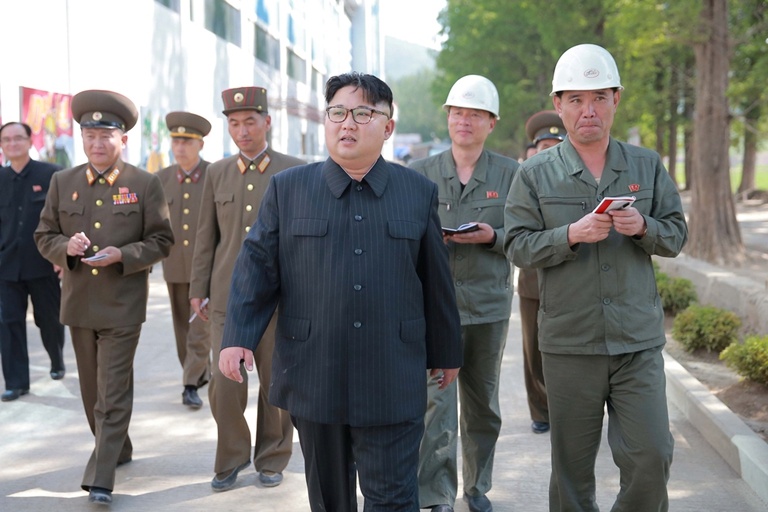
NO QUESTION but the next president will face a major headache in North Korea’s frenzied attempts to brandish nuclear and missile threats beyond its borders. Effective options for dealing with leader Kim Jong Un are in short supply. The fruits of the Obama administration’s approach of “strategic patience” are meager, but that does not mean a new president should rush to Pyongyang for a negotiation with Mr. Kim. Instead, a new round of sanctions should be given time. If they succeed, they might give the United States and its allies leverage to deal with this most difficult country.
The Treasury Department on June 1 declared North Korea a jurisdiction of “primary money laundering concern” and said it would impose rules to further isolate Pyongyang from the global financial system by forcing banks to sever ties with North Korea. The primary impact may be to discourage smaller Chinese regional banks from continuing to do business with North Korea because of possible losses due to sanctions. This is the kind of approach that ultimately helped persuade Iran to defer its nuclear weapons ambitions. North Korea has proved wily and devious, evading earlier sanctions, and in any case is not as entwined with the global financial system as was Iran, a major oil exporter. But the new U.S. sanctions may constrict the economic lifeline from China, North Korea’s largest trading partner and an important, if ambivalent, benefactor.
Sanctions will work if they impose a cost on Mr. Kim’s weapons pursuits. But the regime has never shown qualms about consigning millions to subsistence living and famine, under the watchful eye of a massive police state, while concentrating its resources on nuclear and military programs and, lately, on building and using cyberwarfare capabilities. Mr. Kim has promoted a “byungjin” policy of simultaneously pursuing nuclear weapons and economic growth. Four nuclear tests have been carried out, the most recent in January. Mr. Kim sees atomic weapons and the missiles to deliver them as essential to his survival, although his braggadocio — such as claiming to have exploded a powerful hydrogen bomb, or threatening to turn Manhattan to ashes — is usually over the top.
Even if some of his boasts are empty, Mr. Kim cannot be ignored. North Korea already has a small nuclear weapons stockpile and appears to be moving to extract plutonium from a reactor for use in still more weapons. Mr. Kim is known to be short-tempered and brutal to subordinates, which may be one reason an untested intermediate-range ballistic missile, the Musudan, was suddenly tested multiple times recently, all failures. A petulant, nuclear-armed bully in Asia is all but certain to be at the top of the list of problems for the new president. In the past, bargains have been struck with North Korea, only to end in broken commitments and deep distrust. The sanctions are the right move now, and the next president must find a way to neuter Mr. Kim’s outlandish and frightening peril.
- Publish my comments...
- 0 Comments
